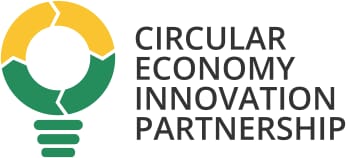
Circular Economy Must Be Part of President’s Economic Agenda
Jonathan Ikeolumba and Natalie Beinisch
President Tinubu has powered through the starting blocks of his new administration, making bold economic decisions that are expected to resurrect the Nigeria economy. We are excited about these developments and believe their underlying ethos: to improve Nigeria’s competitiveness and to build economic opportunities for Nigerians can be delivered with even more success using circular economy approaches. Circular economy approaches aim to minimise waste and promote sustainable use of natural resources through smarter product design, longer product use and recycling. The reason it is an attractive model for Nigeria is because these approaches simultaneously promise to support local economic development while reducing environmental risk. In the Nigerian context there are three areas in particular where this promise appears to hold:
Agriculture and Food Systems: While it’s potential is substantial and agricultural work accounts for over one third of total employment, the agricultural sector has suffered from significant under-investment, with many workers receiving below subsistence incomes. Agricultural inputs are furthermore expensive and often imported. From a circular business model perspective, substantial work has been undertaken in this sector to produce energy, animal feed and other essential and luxury products from organic waste such as cassava peels, cashew fruit. Deeper investment into these business models can create new sources of income for economically vulnerable groups and reduce both the economic and environmental costs of landfilling. However, these business models cannot materialise on their own and require both investment and coordination across a wide range of organisations.
Cities and Infrastructure: Nigeria is home to some of the most dynamic cities in the world. Sadly, the depth of their dynamism is not recognised globally. The most recent ranking of “Most Liveable Cities” by the Economist places Lagos ahead of Damascus, Tripoli and Algiers, but behind Kyiv. Circular Economy approaches, such as material flow analysis, which are both people and experience-centred can be used as a tool to plan for cities like Lagos to gain the positions they deserve on such indices while also helping to address obvious infrastructure challenges in economically productive ways.
Manufacturing and Industry: Design or “upstream innovation” is a core principle of circular economy. However, Nigeria is predominantly an importer of value-add products, with its balance of trade still depending upon the performance of crude exports. There are emerging examples of indigenous businesses that are building exceptional models centred around design and local manufacturing, particularly in the plastics and e-waste recycling sectors. There is a valuable opportunity window to build bilateral relationships that can help these types of businesses to mature and to create opportunities for growth in other sectors. It is vital to take advantage of this opportunity to build the foundations of innovation-based enterprises outside of the oil and gas sector.
While we do not deny that significant investment is needed to mobilize these opportunities, the international salience of the circular economy agenda combined with its orientation towards value creation mean that the new administration need not be saddled with the bulk of the investment burden. Circular economy approaches are also inherently collaborative, depending upon coordination across value chains and diverse organisations. As a first step, the new administration can leverage this by fostering partnerships between different stakeholders, including government agencies, industry associations, businesses, and research institutions. This is already taking place at the macro level through the Nigeria Circular Economy Working Group, hosted by UNIDO, and can be strengthened further through federal-level coordination on priority areas including agriculture, cities and industry. We believe that with more focused coordination, the new administration will be in a position to identify policy tools that are best placed to mobilise opportunities that are consistent with the administration’s ambitious economic agenda.
The integration of the circular economy into Nigeria’s economic development agenda holds tremendous potential for sustainable growth, job creation, and environmental protection. We believe that a circular economy agenda is not only consistent with the economic goals of the new administration but can also serve to enhance it. We call for the President to set up a committee to assure that a circular economy agenda that is compatible with the interests of local economic development is drafted and implemented. We are confident the new administration seeks to build long term sustainable economic opportunity for its citizens and that it will recognize how circular economy approaches can be used to support such crucial work.
Ikeolumba is a Sustainability Consultant and Doctoral Student at the Lagos Business School and Beinisch is the Executive Director of the Circular Economy Innovation Program (CEIP) in Lagos
Article Source: https://www.thisdaylive.com/index.php/2023/07/03/circular-economy-must-be-part-of-presidents-economic-agenda
